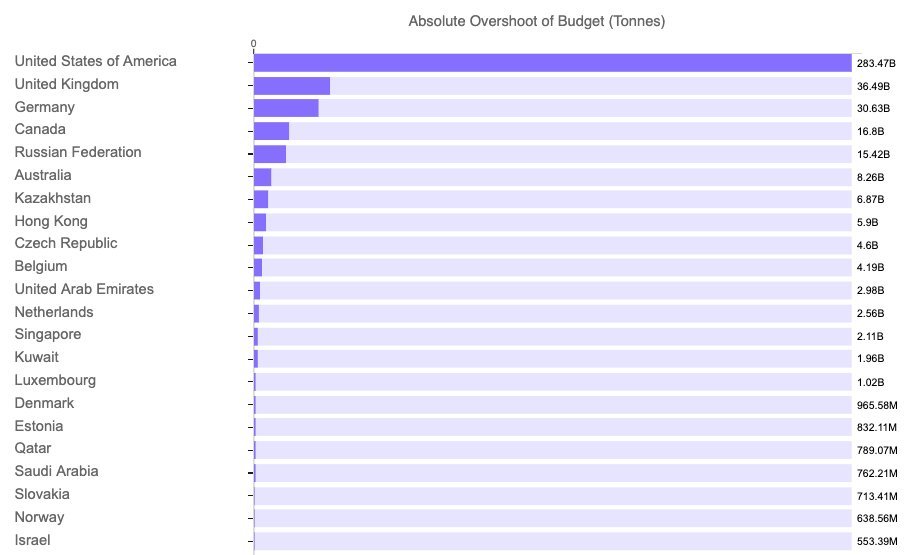
As we await the new US commitment on emissions reductions, we should keep two simple facts in mind:
First, the US is responsible for 40% of global emissions in excess of the planetary boundary - more than any other nation or region by far.
First, the US is responsible for 40% of global emissions in excess of the planetary boundary - more than any other nation or region by far.

This is atmospheric colonization. The US and other high-income nations have appropriated the global atmospheric commons for their own enrichment, gobbling up the fair shares of poorer nations and causing extraordinary damage in the process.
Compliance with the Paris Agreement requires reaching zero emissions by 2050. But this is a global average target. The US and other high-income nations have a responsibility to decarbonize much faster than that. Anything less violates the principles of climate justice.
The source for the first graph is here: thelancet.com/journals/lanpl… And the second graph uses the same method, but with a carbon budget for 2C rather than for 350ppm.
For those asking about China, please read the paper cited above. These graphs do not represent annual emissions or cumulative historical emissions, but cumulative emissions in excess of carbon budget fair shares.
• • •
Missing some Tweet in this thread? You can try to
force a refresh




